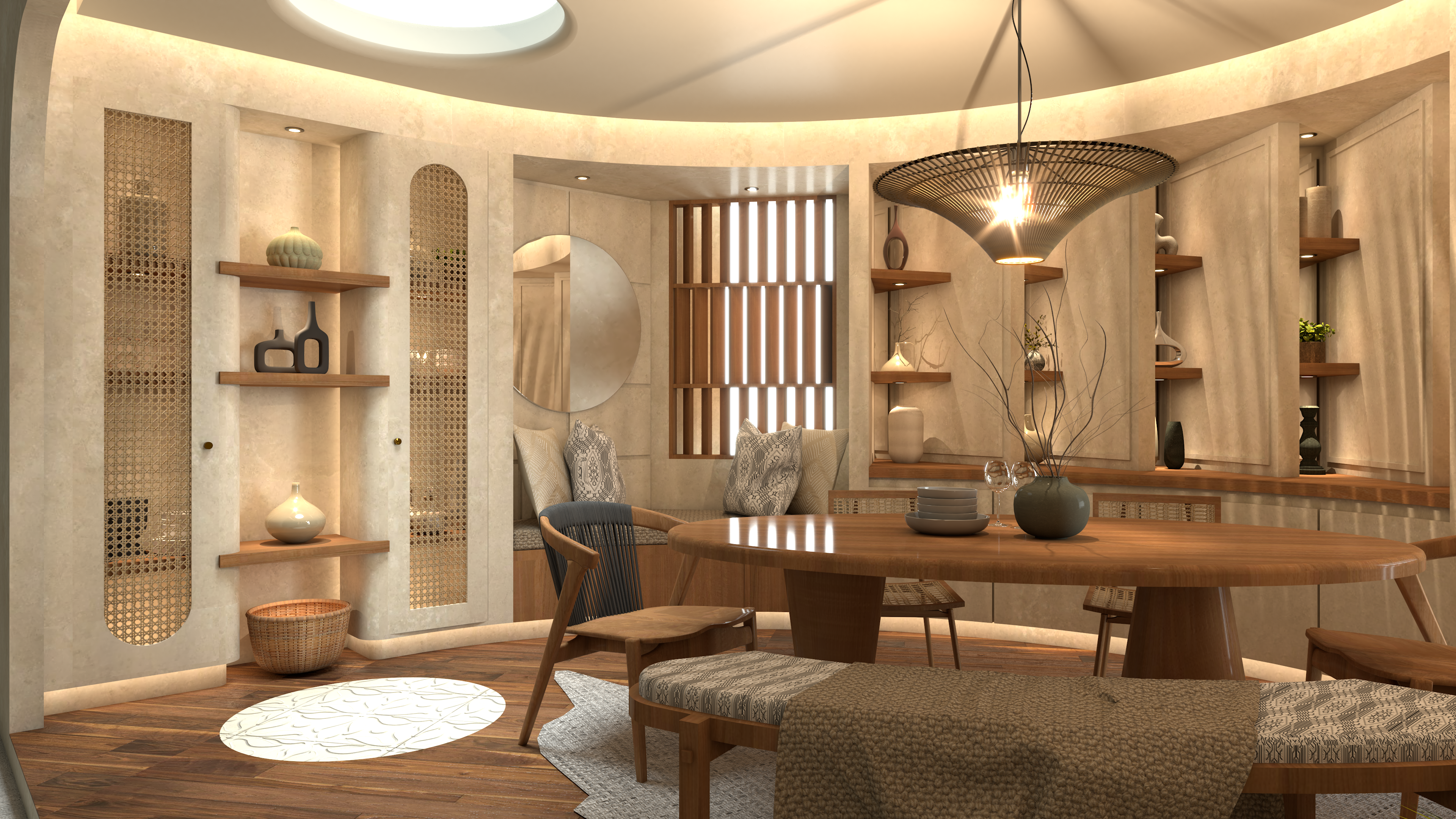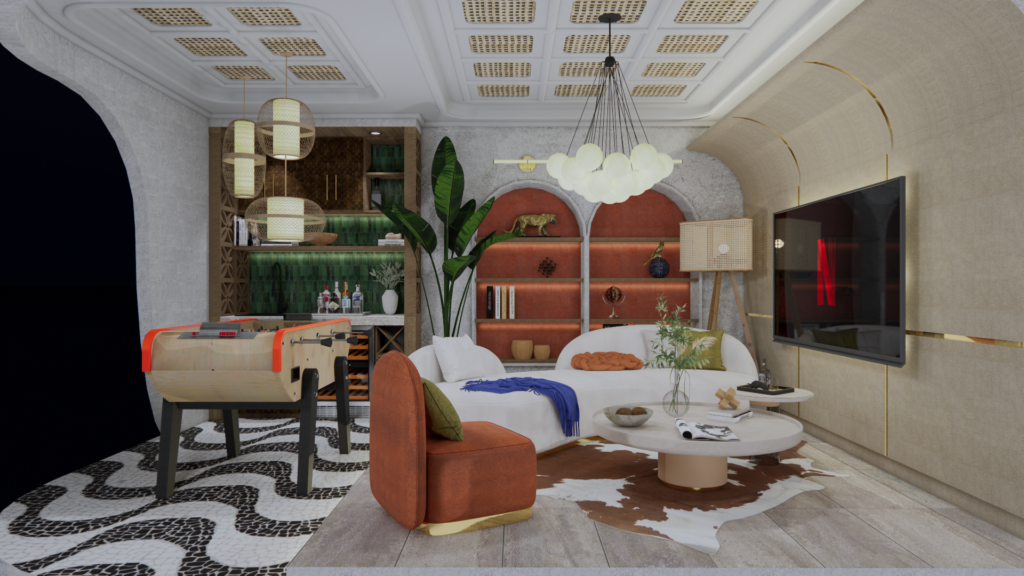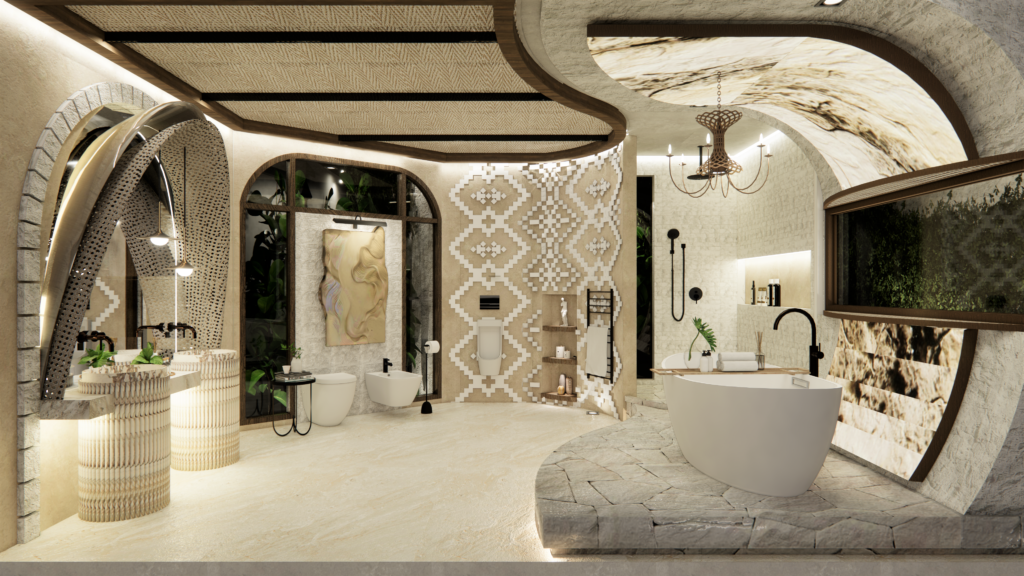Drawing references from as far away as Scandinavia, Egypt, and Brazil, among other places, “PHusion, the latest exhibit consisting of 12 booths from the graduating class of one of the country’s premiere interior design schools, is perhaps the equivalent of an interior design mash-up producing interesting and often beautiful results.
The Philippine School of Interior Design (PSID) presents “PHusion,” an interior design exhibit exploring the blending of Filipino cultural, historical and pop culture references with global cultures, slated from October 1 to 31, at the Greenfield Tower, Greenfield District in Mandaluyong City.
Composed of 12 booths showcasing varied interpretations of the theme “PHusion,” this year’s PSID graduating class takes on the challenge of creating unique living spaces that weave interiors and different cultures and influences through stories, emotions and beliefs. Co-presented by Greenfield District, “PHusion” will show how celebrating cultural diversity can result in new yet relevant interior designs. Below is a sneak peek.

PH x Egypt booth “Ikaw at Ako” by Janiz Karen Adlawan, Katrin Miriel Araja, Katrina Marie Balkin, Nicole Mercado, Joana Mannel Lipana
Walk like an Egyptian. This living room knits together the grandeur and functionality of Filipino and Egyptian designs. Especially interesting is a decorative art piece made with wood panels, perforated hieroglyphics and baybayin writings which translate to “Ikaw ang aking Tahanan” and “Mahal kita, magpakailanman,” respectively.

PH x South Africa booth “Bahay Ubuntu” by Maria Cheska Luisa Mendoza, Ayessa Chloe Carpio, Sofia Raphaelle Pascual, Sophia Chelsea Yling
Warm and earthy like South Africa. The Bahay Ubuntu dining space expertly blends Filipino with South African rich histories and cultural subtleties. Local treasures such as tribal masks and woven and handcrafted accessories contribute to the atmosphere’s storytelling.

PH x America booth “Fillenium” by Ma. Stella Bagro, Romeo Gabriel Conge, Rovina Angelica Manuel, Rosana Bandola
Hollywood calling. An open-concept kitchen space that melds both strong colors and gold accents in the American Hollywood Regency style and Filipino rich traditional heritage can be nothing but interesting.
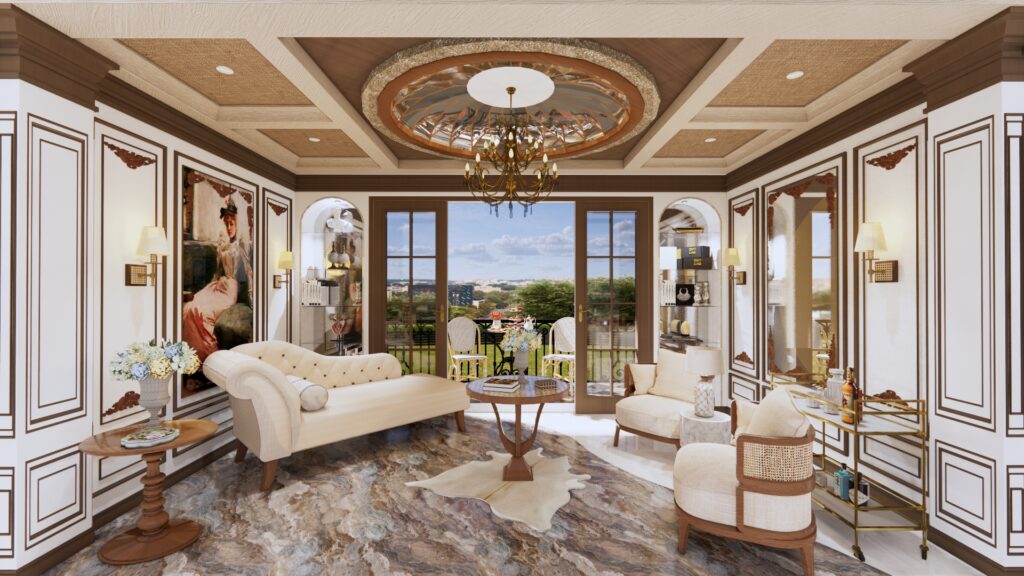
PH x France booth “L’amour du Monde Entier” by Alma Marie Lagman, Kristin Dominique Ramos, Bettina Sophia Ejercito, Mary Rose Glovelle Palileo
French opulence. L’amour du monde entier (Love from Around the World) is an opulent living room that incorporates local Filipino materials like wood, capiz, and solihiya, with French design using glass, mirrors and other reflective surfaces.
Brazil, Brazil! This entertainment area named A Diversão (fun) showcases a harmonious space that features vibrant fabrics, organic and natural finishes and tropical plants, which contrast with elements that reveal the warmth and cultural nuances of Filipino design.
Italian Booth. Aptly named Semantika, the bathroom shows that even though Filipino and Italian cultures’ identities are unique, there are methods to establish common ground or understanding. Inabel fabric designs were used as a prominent design feature to represent Filipino culture and tradition. The space also features dark heavy wood trims contrasted with soft ecru ceilings and walls, reminiscent of the rustic Tuscan style—a significant movement in Italian house interior design.
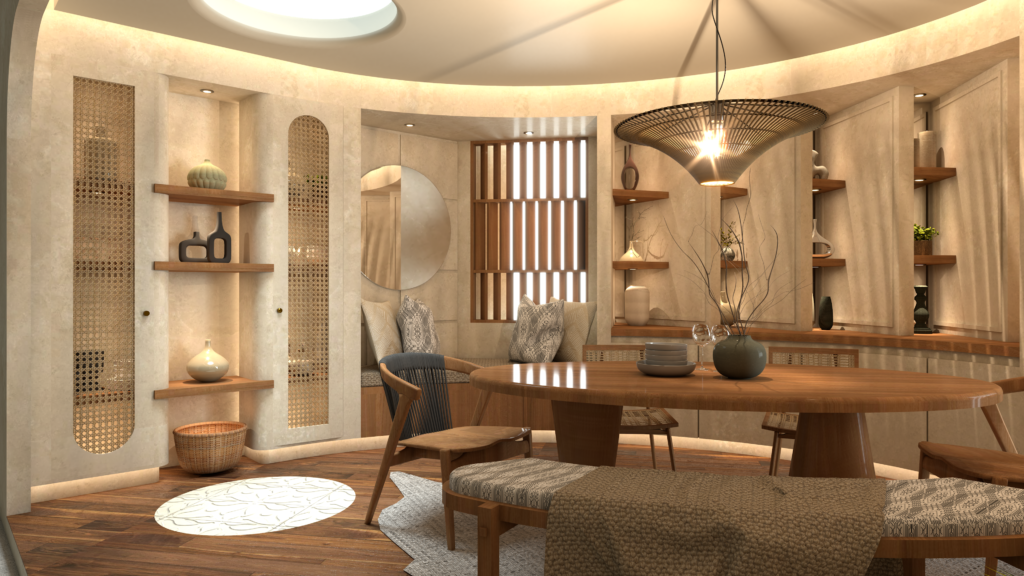
PH x Scandinavia booth “Lagom” by Maria Beatriz San Luis Gutierrez, Stephen Michael Chan, Carl Lois Mico, Nicolette Lee
Balanced and Scandinavian. This space reflects the Scandinavian ethos of Lagom—a Swedish word that translates to just the right amount or not too much, not too little. Featuring an elliptical shape reminiscent of the delicate curves of iconic Scandinavian furniture pieces, this dining room provides an unhurried and smooth transition of visual perception. Noticeable intricate Filipino design elements such as solihiya, rattan and slatted wooden louvers fill the space, balancing the minimalist Scandinavian design style.

PH x U.K. booth “A bachelor’s tavern” by Marielle Marzan, Regine Calupitan, Hannah Izabella Galanto, Ailene Cariño
Fab and smashing British. This bachelor’s pad kitchen features a uniquely cut island counter with a smoked capiz ceiling—the centerpiece adding the modern flourish to the traditional English kitchen mantelpiece. Filipino and art deco elements like the Barong Tagalog and sunburst patterns are scattered as design elements to add cross-cultural fusion to the pub-inspired space.
Nicaraguan Relaxation. Relajarse, which translates to relax, is a bathroom that embodies the fusion of Filipino and Nicaraguan culture. The use of limewash walls and organic materials creates a link to nature, simulating the sense of being in a tropical paradise. Furthermore, the use of gold accents pays homage to Nicaragua’s long history of gold production.

PH x Australia booth “Yakka” by Franchesca Eunice Co, Reina Kristina Sempio, Kharen Charmaine Urbano, Maria Katrina Challoy
Hard-working mate! Yakka, which translates to hard work from an indigenous Australian language, gives a peek at what it feels like to work within a space that feels like a landscape. Curves in the space simulate the organic and picturesque shapes of Australia’s landscape, adorned with dot art-inspired paintings as a nod to the Aboriginals. Durable materials, such as burlaps and rattan, reflect the Philippines’ rich natural resources.

PH x Japan booth “Pitokaja” by Joan Dominique Vinco, Kaila Patricia Caido, Victor Jay Flores, Sophia Isabelle Serrano
Turning Japanese, Pearl of the Orients meets prosperity in this Filipino-Japanese fusion bedroom, a combination of the Japanese number 8 which symbolizes “growth” merged with the Philippines’ wood, stone, capiz, bamboo, and rocks.

PH x Persia booth “Kanlungan” by Sheina Rose Gina, Karen Cabalquinto, Isobel Merici Dator, Erica Leona Chua
Persian Persuasion. This bedroom features the rich and vibrant culture of Persia combined with the natural and neutral palette of Filipino materials. Indigenous Filipino materials were integrated with intricate Persian details to create a balanced and symmetrical space.

